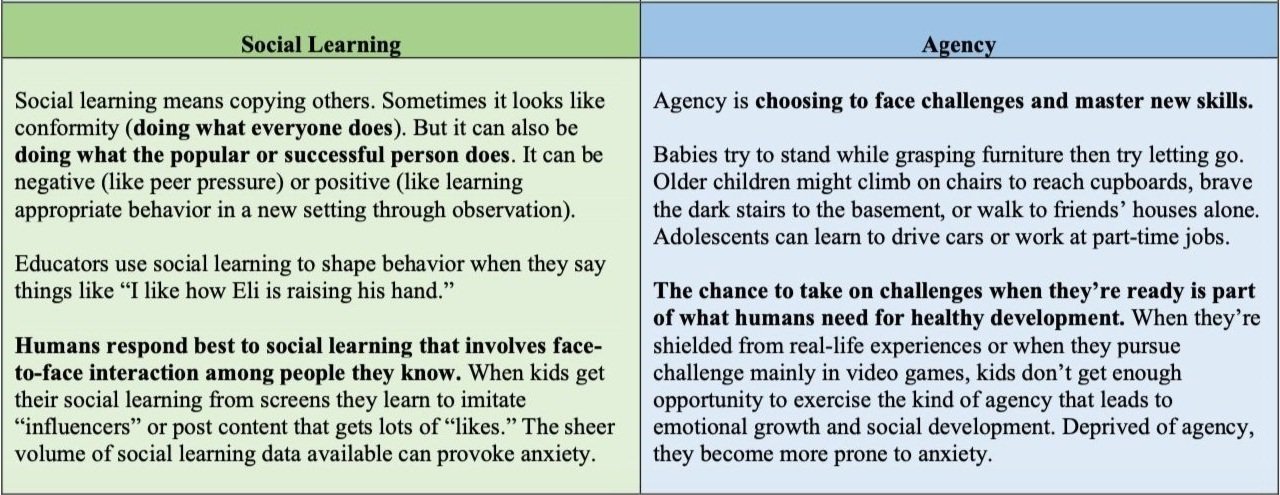Raising Future-Ready Kids
The Digital Age: A Shift in Childhood
Over the past decade, technology has transformed how children grow and learn, offering benefits that enhance education and connectivity. However, this shift has also replaced some in-person play and hands-on exploration, which are essential for early development. Increased screen time is linked to rising anxiety and a loss of real-world experiences, negatively impacting children’s mental health. In The Anxious Generation, social psychologist Jonathan Haidt describes this as a “collective action problem,” highlighting the need for collaboration among parents, educators, and communities to address the mental health challenges of excessive screen use. He outlines simple steps families can take to mitigate these concerns.
Key Concerns
Excessive Screen Time: Erodes attention spans and stunts social skill development.
Reduced Free Play: Packed schedules crowd out vital imaginative play.
Fragmented Focus: Fast-paced digital content weakens the ability to concentrate.
Sleep Disruption: Pre-bed screen use disrupts sleep, negatively affecting mood and health.
What Children Really Need
During the preschool and elementary years, a critical time for brain development, children thrive on free play, attunement, social learning, and a sense of agency.
The graphic below highlights how these foundational experiences are linked to essential abilities in later life.
Top 4 Things Families Can Do Now!
To address these concerns, families can implement strategies that not only combat the negative impacts of excessive screen time but also foster independence and resilience in their children. Here are four key approaches:
Promote Independence: Encouraging children to engage in independent activities is crucial. According to Haidt and other experts, this fosters resilience and helps children cope with life's inevitable stressors.
Set Screen Time Boundaries: Establish clear limits on device use—model healthy digital habits as a family.
Pro Tip: Setting boundaries benefits your mental health, too—try keeping devices away during meals, while driving, and out of your child's bedroom.
Maintain Consistent Routines: Regular daily schedules encourage healthy habits and help reduce anxiety, addressing the fragmented focus caused by constant digital stimulation.
Encourage Social Interaction: Organize playdates and group activities to foster meaningful relationships and counteract the reduced free play in children’s lives.
Join Us for More Insights
At WHPS, we are committed to fostering independent exploration. This fall, our preschool staff will participate in professional development with Lindsay Astor Grant, an expert in movement and exploratory play. We invite all parents to join our next Parent MasterClass on November 13: "Nurturing Resilience and Independence in Today’s Kids," where you'll gain practical strategies to support your child's development.
For Further Reading:





